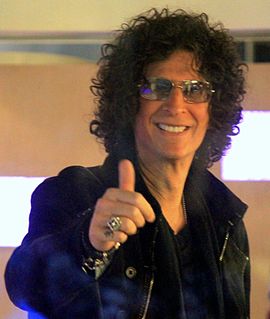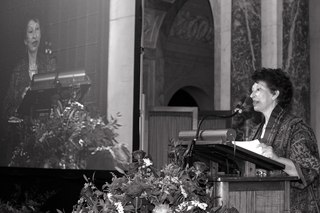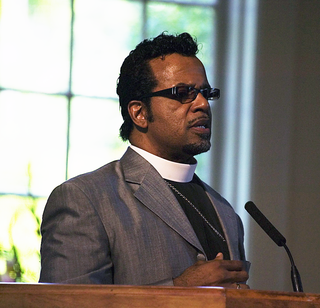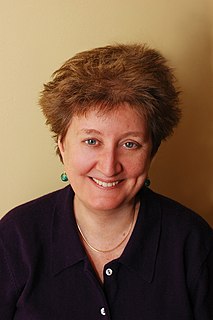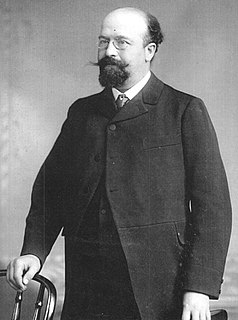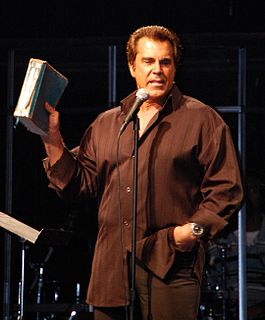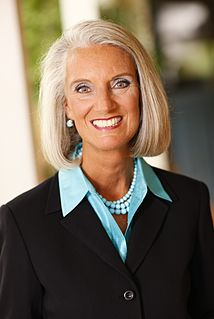Top 1200 Christianity And Judaism Quotes & Sayings - Page 2
Explore popular Christianity And Judaism quotes.
Last updated on April 16, 2025.
I do understand that America is a predominantly Christian country. A lot of morals and values are based in Christianity as opposed to Buddhism, which it's not, or Judaism, which it's not, or Islam, which it's definitely not. So I'm not going to lie to myself and just be like, 'Well you know, everybody's equal.' Because we're not.
I don't think any religion makes any sense and I think people who are into that are really getting duped, and I don't think Judaism makes any more sense than Christianity, and I don't think Christianity makes any more sense than Scientology. But here's a guy, L. Ron Hubbard, who told all his friends, 'Look, I'm gonna start a religion, 'cause I can't make any money as a science fiction writer.' I mean, he admitted that publicly! At least with Jesus Christ, you can't go talk to the guy.
Christianity indeed has equaled Judaism in the atrocities, and exceeded it in the extent of its desolation. Eleven millions of men, women, and children have been killed in battle, butchered in their sleep, burned to death at public festivals of sacrifice, poisoned, tortured, assassinated, and pillaged in the spirit of the Religion of Peace, and for the glory of the most merciful God.
In Judaism or Christianity and so forth, you invent rules that don't exist anywhere except in your imagination. You spend your life trying to gain points and to avoid all kinds of things that detract from your points. And if by the time you die you gather enough points, then you pass on to the next level, in Heaven.
The concept (of happiness) is universal. In Buddhism, it is called causeless joy, in Christianity, the kingdom of heaven within, and in Judaism it is called ashrei, an inner sense of holiness and health. Is Islam it is called falah, happiness and well-being, and in Hinduism it is called ananda, or pure bliss.
Every single one of the major world faiths, whether we're talking about Hinduism, Buddhism, Confucianism, Darwinism, Judaism, Christianity and Islam, have all come to the conclusion that what holds us back from our better self is ego, selfishness, greed, unkindness, hatred. And it all springs from a sense of thwarted ego.
It is against their own insoluble problem of being human that the dull and base in humanity are in revolt in anti-Semitism. Judaism, nevertheless, together with Hellenism and Christianity is an inalienable component of our Christian Western civilization, the eternal "call to Sinai" against which humanity again and again rebels.
Anytime that knowledge and a version of the truth are considered to be absolute, fundamentalism is the result, whether the arena is Christianity, Islam, Judaism, or any other religious faith, as well as atheism, conservative or liberal political views, even evolution or intelligent design. Anytime our minds are closed and there is no room for dissent, we are on a slippery slope towards stagnation.
Along with Islam and Christianity, Judaism does insist that some turgid and contradictory and sometimes evil and mad texts, obviously written by fairly unexceptional humans, are in fact the word of god. I think that the indispensable condition of any intellectual liberty is the realisation that there is no such thing.
The Jew...is not content merely to destroy Christianity, but he preaches the gospel of Judaism; he not only assails the Catholic or the Protestant faith, but he incites to the unbelief, and then imposes on those whose faith he has undermined his own conception of the world, of morality and of life. He is engaged in his historic mission, the annihilation of the religion of Christ.
With an abstract idea it is possible to enter into a relation of formal knowledge, to become enthusiastic about it, and perhaps even to put it into practice; but it can never be followed in personal obedience. Christianity without the living Christ is inevitably Christianity without discipleship, and Christianity without discipleship is always Christianity without Christ.
My mom and my aunties are really devout Christians. My mom married a Muslim when I was 12, so I got teachings from both sides and then other sides because I wanted to find out which way to go. So not only Christianity and Islam, but Confucianism, Shintoism, Taoism, Buddhism, and Judaism. I tried to read everything.
My faith was undermined by the same sort of things that make people skeptics of religion in general. Part of it was, there was no real place for me in Judaism. Maybe if there was I would've hung in there, but I was attracted to the social-justice aspects of Judaism, and I was attracted to the prophets.
The decision must be made between Judaism and Christianity, between business and culture, between male and female, between the race and the individual, between unworhtiness and worth, between the earthly and the higher life, between negation and God-like. Mankind has the choice to make. There are only two poles, and there is no middle way.
There is a reason Christianity is violently opposed in our world while other religions and philosophies are tolerated... Biblical Christianity evokes violent responses from some people, because only in Christianity is there an absolute right and wrong. People hate the Bible and Christianity because of the law of God.
Christianity possesses the great advantage over Judaism of being represented as coming from the mouth of the first Teacher not as a statutory but as a moral religion, and as thus entering into the closest relation with reason so that, through reason, it was able of itself, without historical learning, to be spread at all times and among all peoples with the greatest trustworthiness.






